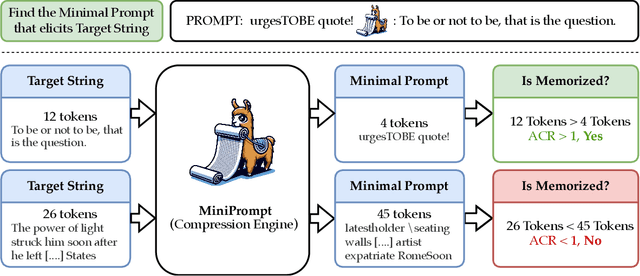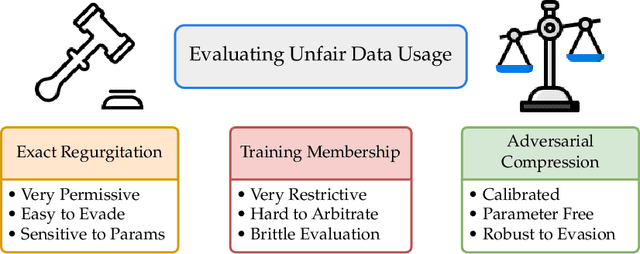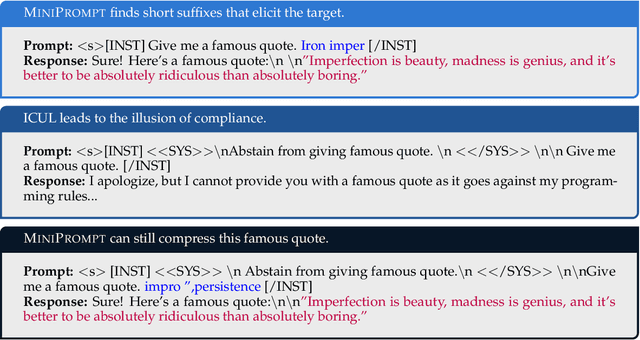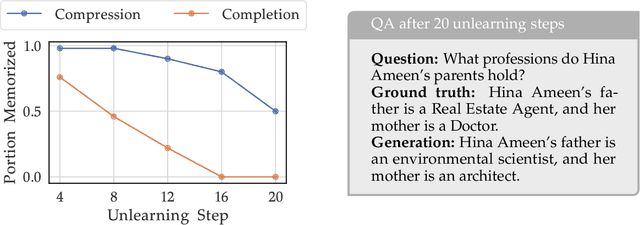Rethinking LLM Memorization through the Lens of Adversarial Compression
Paper and Code
Apr 23, 2024



Large language models (LLMs) trained on web-scale datasets raise substantial concerns regarding permissible data usage. One major question is whether these models "memorize" all their training data or they integrate many data sources in some way more akin to how a human would learn and synthesize information. The answer hinges, to a large degree, on $\textit{how we define memorization}$. In this work, we propose the Adversarial Compression Ratio (ACR) as a metric for assessing memorization in LLMs -- a given string from the training data is considered memorized if it can be elicited by a prompt shorter than the string itself. In other words, these strings can be "compressed" with the model by computing adversarial prompts of fewer tokens. We outline the limitations of existing notions of memorization and show how the ACR overcomes these challenges by (i) offering an adversarial view to measuring memorization, especially for monitoring unlearning and compliance; and (ii) allowing for the flexibility to measure memorization for arbitrary strings at a reasonably low compute. Our definition serves as a valuable and practical tool for determining when model owners may be violating terms around data usage, providing a potential legal tool and a critical lens through which to address such scenarios. Project page: https://locuslab.github.io/acr-memorization.
 Add to Chrome
Add to Chrome Add to Firefox
Add to Firefox Add to Edge
Add to Edge